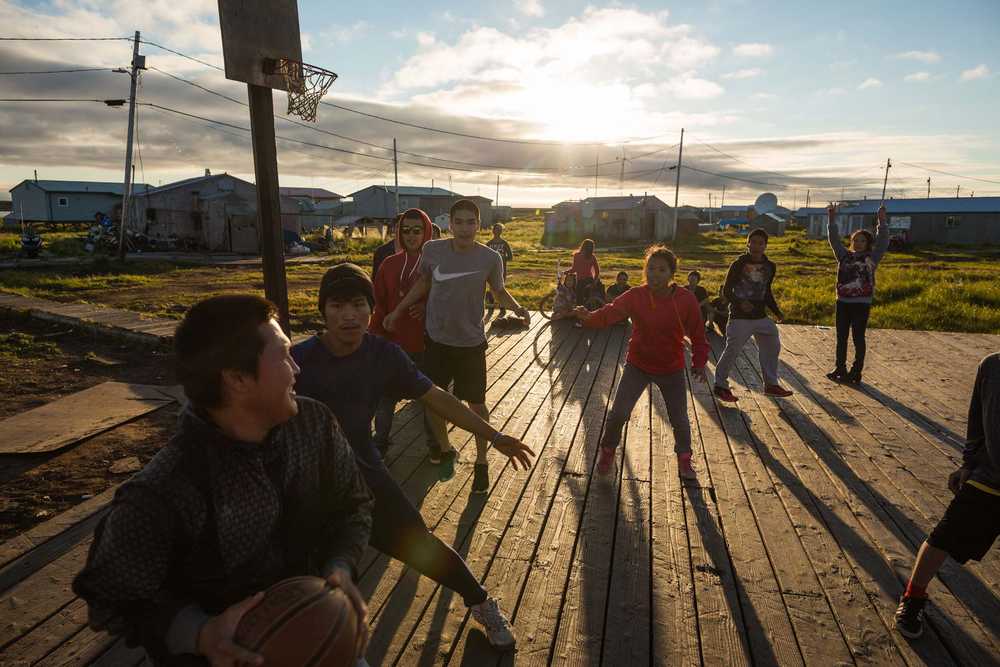ANCHORAGE — One of Alaska’s most eroded coastal Native villages is being eyed as a possible national model for relocating whole communities whose futures are threatened by natural disasters escalated by climate change.
The state is hoping to kick-start a mass exodus from the tiny village of Newtok through a national competition for states and local governments vying for a slice of nearly $1 billion in grants to be awarded by the U.S. Department of Housing and Urban Development. HUD’s National Disaster Resilience Competition is billed as an effort addressing climate change and extreme weather.
If successful, Alaska officials are proposing that $62.6 million of the funds be used for relocation costs, including money for infrastructure and money to allow 62 families from Newtok to establish new homes at the chosen relocation site on higher ground 9 miles away. In the draft proposal publicly released Friday, state officials also are seeking a total of $162.4 million for three other vulnerable villages — Emmonak, Galena and Teller — with extensive storm damage in recent years.
But officials acknowledge that competing for the funding unused by Hurricane Sandy victims won’t be easy. Alaska is among 40 finalists for the funds, including Hurricane Katrina-ravaged New Orleans. Still, Alaska officials are hoping their proposal catches the eye of federal officials.
“We think we have a very compelling story to tell,” said Sally Russell Cox, a state planner who worked on the competition entry.
The release of Alaska’s proposal opens a 15-day public comment period before the final contest submission is due to HUD Oct. 27.
President Barack Obama, in his recent three-day visit to the state, focused almost entirely on climate change and how temperatures are rising faster in Alaska than anywhere else, already threatening entire communities.
Newtok is the only one of Alaska’s multiple imperiled communities that has begun a physical move. The Yup’ik Eskimo community of about 380 shepherded various multiagency projects including construction of several homes and the beginning of an evacuation community center, which would be completed with nearly $5.5 million sought through the HUD competition. A tribal power dispute, however, stalled relocation efforts for about two years until a federal appeals panel sided with the new village leaders last month.
Oblivious to village politics, the raging Ninglick River is steadily inching toward homes, gobbling up as much as 75 feet of riverbank a year. Melting permafrost is sinking and knocking homes and village boardwalks out of alignment. Officials estimate Newtok, nearly 500 miles west of Anchorage, has until 2017 until erosion is expected to reach the school.
Villagers believe they’re living on borrowed time, and they are actively lobbying for funding wherever they can find it. Village relocation coordinator Romy Cadiente is in Washington, D.C., this week to gather support by meeting with officials, including Alaska’s congressional delegation or their representatives. The village is also trying to obtain funding for some homes for the new site through the U.S. Federal Emergency Management Agency, or FEMA, and is working with the Cold Climate Housing Research Center in Fairbanks on plans to build a high-efficiency home at the current site as a demonstration model.
“We’re trying to really focus on how to get this village out of there,” Cadiente said in a phone interview Wednesday. “That shore is not going to grow back.”

